Phase 2: Project Support
The Project Support phase is an opportunity for eligible Fellows and Mentor Fellows to put what they’ve learned in the first phase of the fellowship, the Studio Experience, into practice with an ambitious public engagement project.
Eligible faculty may develop plans for a publicly engaged project and then submit a proposal for funding and in-kind support for that project from the Office of the Vice President for Research.
Featured Projects
There are now 16 engaged projects that have received support from the Public Engagement Faculty Fellowship. Projects undertaken in Phase 2 highlight the range of public engagement opportunities, from translating current research for specific audiences to deepening research agendas with community partners and leveling up creative scholarly practice. You can find out more about a few of these projects below.
Humanizing the Numbers at the Detroit Historical Museum
Faculty Lead: Isaac Wingfield, College of Literature, Science, and the Arts, Ann Arbor
PEFF Cohort: 2020
Professor Wingfield partnered with the Detroit Historical Museum and participants in the Prison Creative Arts Project to create a full-scale exhibit featuring photographs created during participatory workshops held with men who are incarcerated. The exhibit, on view in spring of 2023, showcased the invisibility of the prison system as well as the humanity of those who are incarcerated there. The exhibit is now traveling to other venues across the state
Imagine A World In Which We Can All Breathe
Faculty Lead: Sarah Peitzmeier, School of Nursing, Ann Arbor
PEFF Cohort: 2021
Professor Peitzmeier worked with Maia Kobabe, author of Gender Queer, to create an online evidence-based zine based on Professor Peitzmeier’s research around chest binding in trans and nonbinary individuals. Zines have a long and rich history in LGBTQ+ communities, and this zine aims to be a resource for trans and nonbinary people about how to bind safely and effectively. The zine was picked up by a Penguin Random House imprint and published in an expanded form as a book.
Blueprints for the U-M Housing Policy and Research Center
Faculty Lead: Roshanak Mehdipanah, School of Public Health, Ann Arbor
PEFF Cohort: 2020
Professor Mehdipanah studies the intersections of health and housing, particularly the idea of housing as a social determinant of health. Her project involved the early planning and development for a community-engaged research center focused on regional housing policy, with the intent to pursue larger funding and grant proposals in the future. The project helped lay some of the foundations for the current Housing Solutions for Health Equity initiative.
Project Support Timeline
Eligible Fellows and Mentor Fellows may propose a project for Phase 2 support during any annual funding cycle after they have successfully completed the Studio Experience. The call for proposals is generally shared in early summer.
Proposing a project for Phase 2 involves a three-stage development process:
- Attend at least one project consultation with the PEFF admin team by September 15.
- Submit a full draft proposal for feedback from the PEFF admin team by October 15.
- Submit a final proposal for formal review by a committee of engaged faculty by December 15.
Faculty will receive notification about whether their proposal was selected for funding no later than March 1, with project funds disbursed shortly after for selected projects. If their proposal is not initially accepted, faculty may resubmit in a future cycle.
Project Support Details
Budget requests for FY26 are capped at $15,000. Examples of allowable expense categories include but are not limited to:
- Funding for students to support the project
- Honoraria and other forms of payment for partners external to the university
- Supplies, materials, and other physical resources necessary to the project
- Travel associated with project activities
Faculty may also request in-kind support from the PEFF admin team in areas such as public communications efforts, connecting with others who can help support the project, and project management.
Selected projects are capped at 5 each fiscal year.
Additional details can be found in the Phase 2: Project Proposal Guidelines.
